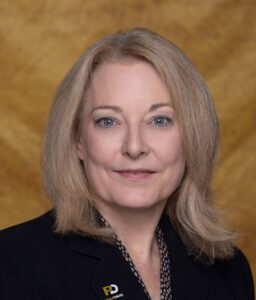 Atul Vashistha serves on the boards of the US Department of Defense Reserve Forces Policy Board, Shared Assessments and Supply Wisdom. Atul is the Founder of Supply Wisdom & Neo Group and the visionary behind GBSBoard and RiskBoard. Since 2017, Atul has been the Chairman of Supply Wisdom, whose AI led solutions transform global business with comprehensive, predictive, real-time risk intelligence. Since 1999, Atul and his teams at Neo Group have advised enterprises on how to leverage global talent, big data and digital technologies to build new capabilities, increase resiliency, mitigate risks and enable better corporate and societal outcomes. Atul is also a member of YPO since 2003, including serving as Chair of the Norcal chapter.
Atul Vashistha serves on the boards of the US Department of Defense Reserve Forces Policy Board, Shared Assessments and Supply Wisdom. Atul is the Founder of Supply Wisdom & Neo Group and the visionary behind GBSBoard and RiskBoard. Since 2017, Atul has been the Chairman of Supply Wisdom, whose AI led solutions transform global business with comprehensive, predictive, real-time risk intelligence. Since 1999, Atul and his teams at Neo Group have advised enterprises on how to leverage global talent, big data and digital technologies to build new capabilities, increase resiliency, mitigate risks and enable better corporate and societal outcomes. Atul is also a member of YPO since 2003, including serving as Chair of the Norcal chapter.
1. What is the key to being a successful director?
I like to follow this rule of 7:
1. Understand the industry/market and keep up
2. Understand the company and its competition and keep up
3. Understand its unique strategy (revenue, costs, people, process, technology and profit drivers)
4. Provide advice on strategy that advance the strategic goals
5. Keep an eye on the future while evaluating performance
6. With CEO and their team, seek first to understand and always be candid in your feedback
7. Monitor enterprise risks and ensure mitigation plans are in place
2. What has been your most rewarding experience as a director? One of my rewarding experiences as a director has been to be part of and help a company make a strategic shift in its business model. A strategic shift that led to increase of 5X in valuation over 3 years and an exit.
3. What piece of advice would you give to those looking to land their first board seat? Get certified as it helps one to better understand expectations and get more clarity on how to be a good board member. Secondly, leverage your network to increase access to opportunities.
4. What changes do you anticipate seeing in the boardroom in the next five years? I expect an increase in diverse voices on the board, with an increase in demand for those that are technology and risk savvy.
 Andy Louis-Charles
Andy Louis-CharlesAndy has over twenty years of board experience. Starting with a municipal board role, Andy has served on a number of non-profit and private company boards. He is currently a Board Director at Storyblocks – the first and largest subscription-based stock media company.
Professionally, Andy has served as Chief Strategy Officer at CustomInk — the largest online custom apparel company in the US — where he has led ~$1B in corporate transactions, incubated over $100M in new business line revenue, and helped create a 10X+ increase in enterprise value. In 2024, Andy will begin serving as board advisor for Custom Ink as he launches an early stage venture fund.
Previously, Andy was a contributor, investment analyst, and real-money portfolio manager at The Motley Fool as well as a featured analyst on CNBC Worldwide. Over his career, Andy has founded, managed, and invested in numerous companies and investment partnerships.
Andy received a Bachelor of Industrial & Systems Engineering from Georgia Tech where he was inducted into the ANAK Society, the university’s highest senior honor. Subsequently, he earned his Juris Doctor degree from the University of Florida College of Law, graduating cum laude. Additionally, Andy won First Place Honors at Harvard Business School’s AASU Entrepreneurial Ventures Competition. He subsequently leveraged Harvard’s $10K cash award into a multi-million dollar commercial real estate venture which he exited in 2007.
1. What is the key to being a successful director?
It’s really about understanding your role as a director and fully embracing “your verbs”.
Let me explain.
A significant proportion of board members come from operational backgrounds.
So if you’re a current or former CEO or C-level executive you spend your days leading, managing, motivating, executing, deciding.
As an operator, these are your verbs.
Using an analogy, C-level executives tend to be player-coaches.
They are used to finding championship level talent, training them, and drawing up the best plays to put their teams in the best position to win. On occasion the player-coach might strap on their old chin guard and take the field to help secure a win.
But this is not typical of a board member.
As a director your verbs are different from that of an operator.
Board members oversee, advise, govern, evaluate, and approve.
Successful board members typically aren’t player-coaches but rather vital members of world class “front office” teams.
Our job as directors is to monitor the team’s overall direction and performance. We offer strategic advice to “the coach” (i.e., CEO) and evaluate their performance. We ensure “the franchise” (i.e., company) plays by the rules by setting governance structures and policies to ensure ethical operations and regulatory compliance. Lastly, similar to a franchise’s front office we approve significant decisions like budget, C-suite hires, major corporate actions (i.e., M&A, financing, stock issuance and buybacks), and major strategic shifts.
Bottom line, a successful director helps build an enduring franchise that creates value for stakeholders.
2. What has been your most rewarding experience as a director?
As a young director, I had the unique opportunity to chair the nominating committee for Kristi House, a South Florida child advocacy center.
I had gotten to know the president of Kristi House through mutual friends and because of the community work and my board service with a Miami-Dade Parking Authority subcommittee, she recommended me for a board position.
During my second term at Kristi House, I was asked to chair the nominating committee. While this alone was an honor, the most rewarding experience came about when I had the opportunity to recruit a strong class of directors.
Among this cohort, I had recruited a particularly high potential candidate who I thought could be great for future leadership within the organization. I had the honor to mentor him and he eventually became President of the organization.
I love identifying and nurturing talent, setting them up for future success, and this situation resulted in a win for everyone.
3. What piece of advice would you give to those looking to land their first board seat?
Be good. Be around. Be of service.
As to being good, the late Charlie Munger – Warren Buffet’s long term business partner – was known to advise;
| “To get what you want, you have to deserve what you want.”
To secure a board seat, study examples of successful directors, identify the qualities that make them effective and sought after, and develop those traits.
Being around is about being present in the right rooms.
As Woody Allen famously said, “80% of success is showing up.”
It apparently checks out as I’ve seen surveys that indicate upwards of 80% of board seats are filled through personal referrals and networks.
Do you want that referral? Join the associations and attend the events that directors do.
Ultimately, it’s not who you know, it’s who knows you and the quality of your work.
Which brings us to the final and most important piece – being of service.
Naval Ravikant, founder of AngelList, talks extensively about how the act of just “networking” is overrated. His advice is to “become first and foremost a person of value and the network will be available whenever you need it.”
Remember, boards face a lot of challenges. Having individuals that are good at navigating risks and challenges are worth their weight in gold.
Fred Rogers (Mister Rogers) summed it up, “When I was a boy and I would see scary things in the news, my mother would say to me, ‘Look for the helpers. You will always find people who are helping.'” It’s a complex and scary world and boards need the helpers.
So, if you’re skilled, visible, and useful, you’ll be well positioned to land your first board seat.
4. What changes do you anticipate seeing in the boardroom in the next five years?
In the next five years, boards will likely become slightly younger, more compliant, and more pervasive.
Regarding age, the average board director is about 63, while the average publicly-traded company CEO is 50 and a venture-backed company CEO is around 45. As boards’ needs evolve, they will require more input from active operators who navigate rapidly changing competitive and macroeconomic environments. To keep up, boards will need fresh perspectives and digital savvy, attributes typically found in operators who are more than ten years younger than the current average.
As to compliance, regulatory scrutiny tends to move in one direction … more. Also, the rise of artificial intelligence (AI) will present new compliance and oversight challenges, particularly regarding data privacy, cybersecurity, and ethical AI use. Boards will need to enhance their frameworks to keep pace with regulatory requirements and maintain stakeholder trust.
Lastly, expect an increase in the number of boards as more companies remain private longer. While there are only about 4,000 publicly-traded companies in the U.S. (down from roughly 8,000 in the mid-1990s), there are about five times as many private equity-backed businesses in the US. Additionally, there are over 50,000 private venture-backed U.S. startups.
As more dollars flow into the private markets, investors and institutional LPs will likely demand greater oversight and governance that only well-constituted boards can provide.

Barry C. Einsig
Barry Einsig is Founder of Barry C. Einsig Advisory Services LLC, and is a transportation technologist who advises cities, states, national governments, and public or private corporations on their digital transformation. He is currently a board member for EROAD, a transportation technology provider headquartered in Auckland, New Zealand. The company is dual listed in New Zealand and Australia, with a large and growing market presence in North America. Barry currently serves as the chair and founder of EROAD board’s technology committee and is a current member of the nominating and governance committee. He previously served as a member of the remuneration and talent committee.
Barry is a credentialed professional director through the American College of Corporate Directors and a certified director through the National Association of Corporate Directors (NACD). He has attended numerous board training offerings, including the Wharton Executive Education Board Governance program called “Boards Who Lead: Corporate Governance That Builds Value.” He was a previous board member of the Connected Vehicle Trade Association. He served as a founding member of Singapore CARTS Committee, focused on connected and highly automated vehicle systems for the nation. He served as a mentor in the Columbus Smart City incubator for HAAS Alert, a successful start-up launch in digital alerting for connected roads. Barry is a patent holder for the use of video over LTE networks. Finally, Barry is a subject matter expert who testified before the House Energy and Commerce Committee on the technology industries’ readiness to deploy connected vehicle technology systems.
Before starting his own firm in 2022 Barry held previous roles as a vice president for Econolite Systems, Principal for CAVita, Global Automotive and Transportation Executive for Cisco Systems, Director of Transportation and Strategic Development for L3/Harris Corp. and other roles in the technology industry.
1. What is the key to being a successful director?
The key is knowing that the board is a team, working together to support the organization’s strategic goals and objectives. This requires knowing that every member has a diverse set of knowledge, skills, and expertise that has been brought together to be effective and efficient at delivering stakeholder value. In short, be collaborative, ask good questions, always learn, be humble, and know that you are not in an operational role.
2. What has been your most rewarding experience as a director?
It has been rewarding to be a part of the board, while recruiting three new board members, two CEO’s, several members of the executive team. During this same period, the board also managed acquisition integration and several fund-raising rounds. Through this current time of remarkable period of growth, transformation, and global supply chain disruption, the company has emerged more prepared for the next level of scaling.
3. What piece of advice would you give to those looking to land their first board seat?
I would start by saying, do not underestimate the power of your personal connections. If you are considering board work, you are already highly accomplished in your field and have a great network. Start by talking to those you are closest to and let them know that you are looking to join board service. Next, identify your top two or three key skills that are valuable to board work. These skills are the ones that will likely get you the first opportunity to interview for a board. Finally, invest in board education, assess the total skillsets necessary for a successful board candidate and seek out the best educational resources to fill in your gaps.
4. What changes do you anticipate seeing in the boardroom in the next five years?
I would anticipate that the pace of change will continue to accelerate in companies and industries. This will continue to tax boards’ ability to stay up to date with disruptions and digital transformations. This is likely to lead to more focus on board members being lifelong learners and continuing to question the executive team, the industry, and board peers on what the most significant actions are that the business must take to continue to be able to grow and serve the stakeholder community.

Bob Greene has extensive strategic planning expertise through both military and private sector capacities. He has held five command tours throughout his military career of which 10 years were active duty and 25 years in the reserve component, enabling him to have a concurrent private sector career. Upon selection to Rear Admiral, he continued in the demanding private sector capacity while also serving 120 active-duty days/year. He leveraged his vast experience in the art of leadership to be an executive advisor in strategy, operating model design, and organizational development for multiple business line chief executives.
As an energy executive, Bob served as CEO of the University of Iowa Energy Collaborative, a partnership company created in the public-private partnership (P3) between UIOWA, ENGIE, and Meridiam. He reported to the Board of Directors representing investors who endowed $1.2B to the university for a 50-year concession agreement. As the concessionaire, he had direct oversight, direction and control of the campus utility infrastructure and energy capital investments.
During an international assignment, Bob developed and implemented an operational excellence and asset integrity standard impacting over 200 generation assets having a power capacity of greater than 45 GW worldwide by leveraging value-add insights from cognitive diverse frontline and management personnel across the globe.
In his capacity as a Rear Admiral, Bob served as Director, Interagency Partnering, European Command, applying a ‘Whole of Government/Whole of Society’ approach in interagency operations. He also served as the Deputy Commander, Naval Forces Southern Command, where he led 20 partner nations in one of the largest multinational military exercises in the world.
Bob is the Managing Partner of Pilotage Strategic Partners, LLC. He is currently serving as an advisory member on the Cedar Rapids / Linn County (Iowa) Sustainability & Resilience Advisory Committee as well as an active mentor for business start-up ventures at the Tippie College of Business University of Iowa.
Bob graduated from the United States Naval Academy with a degree in Electrical Engineering. He is a certified Navy Nuclear Engineer and a Professional Engineer registered in the Commonwealth of Virginia.
1. What do you feel is the key to being a successful director?
As I am currently seeking my first independent board director role, I could not be more pleased with the foundation of knowledge gained through the Director Fundamentals Program. Having an appreciation of effective board dynamics through best practice insights is extremely valuable as it provides the compass for preparation in becoming a director. There have been a few common themes among featured directors as well as my interactions to date with experienced board members, have a continuing education trajectory, learn the organization’s culture and strategy, and embrace relational effectiveness. Finding a fit that is congruent with your own intrinsic values will become the catalyst for a seamless integration among fellow board members.
2. What has been your most rewarding experience in your professional career that has led you to the journey towards securing a board seat?
I’ve been a keynote speaker for multiple events on the topic of leadership and in response to the request, my theme has been: “What it takes to be a disrupter and how best to apply intrusive leadership without alienating everyone in the process.” Throughout both my military and private sector careers, I have been most rewarded for making a difference in people’s lives in their contribution to society through meaningful purpose, one that will be remembered for a lifetime. This personal ambition entails never being content with the status quo, establishing a relationship of trust and alignment with those you lead through a culture founded upon core values which can only be determined by tapping into their intrinsic drivers, inspiring a compelling vision with no constraints by past ways of doing business and leading with emotional intelligence to create a transformational experience. As a board director, it provides me with the opportunity to leverage my 40 years of experience and influence change for the betterment of the organization.
3. What piece of advice would you share with those looking to secure a board seat?
I would suggest seeking professional expertise on how best to articulate your value proposition in both a career biography and board resume. Subsequently, connect with a firm that focuses on board director placement and have them expand your network with their contact list. This process has become a force multiplier and enabled me to interact with multiple professionals that will further your insights on becoming a director and keep your search active. You can’t be passive in this process; it will take effort to engage with others and you must exhibit perseverance and patience.
4. What changes do you anticipate seeing in the boardroom in the next five years?
Citing the recently issued 1st Quarter 2024 Corporate Board Member edition and insights from seasoned board directors, technological expertise in AI and cyber security will be prominent. However, applying this expertise will only be as effective as having a well-functioning board. This will entail a focus on strategic and critical thinking, a culture embracing transformational vs. transactional relationships and members demonstrating diversity of thought and experience. These core attributes will have the greatest impact on improving board performance in their oversight of management.

Mike Jeans is a CEO and director with boardroom experience in the insurance, startup technology, and non-profit sectors. As a Director of AMICA Mutual Insurance Company, he chaired the Nominating & Governance Committee and served on the Compensation and the Investment Committees. He also previously chaired both the Compensation and Audit Committees. He is also a member of the Board of Directors of the Boys & Girls Club of Nashua (NH) and is the Chair of its Charitable Foundation. He serves on the Board of Directors of The Spirit of Adventure Council of the Boy Scouts and also chairs its Advisory Council. He had earlier served as President of the Board of the Boston Minuteman Council of the Boy Scouts. He is an Eagle Scout and recipient of their national Distinguished Eagle Scout Award. He is the former Chair of the Board of Maine Media Workshops + College in Rockport, ME and former President of the Board of Habitat for Humanity (North Central MA). Mike previously served as President and then Chairman Emeritus of New Directions, Inc., a nationally-recognized career advisory firm; as the President, CEO and Member of the Board of Directors of Roxy.com, Inc., a start-up on-line retailer of consumer electronics; as CEO of Nashua Photo, Inc.; and as President of Wesson/Peter Pan Foods, Inc. (a Conagra company). Mike is a recipient of the Distinguished Director of the Year Award from the American College of Corporate Directors.
1. What is the key to being a successful director?
Being curious and having the ability to ask good insightful questions are hallmarks of great directors. Effective directors also keep their dialog at the strategic level and know the line that divides the duties of the board and management. Good directors understand why they were invited to join the board and use their specific skills and background to add value to board discussions while always being collaborative in decision-making.
2. What has been your most rewarding experience as a director?
Participating on the board’s search committee for selecting our next CEO. It is one of any board’s core responsibilities to oversee the succession process for its CEO. Benchmarking potential internal CEO successors against outside CEO candidates provides an in-depth objective look at the quality of the senior management team while creating the opportunity for a serious strategic discussion of the full board in preparation for this important board decision.
3. What piece of advice would you give to those looking to land their first board seat?
Craft your “board brand” that is both relevant to what a board needs in a director and crisply conveys – both verbally and in writing – the value that you can uniquely bring to the board. Use your network – particularly those who have seen you in action and are already fans of yours. Let these people know that you are interested in board service, that you have the time, and what your value proposition is. Not all boards are alike – do your due diligence before saying “yes”.
4. What changes to you anticipate seeing in the boardroom in the next five years?
Diversity of boards will only accelerate. By this I mean diversity of gender and ethnicity as well as of age, background, and perspective. There will also be a greater realization by boards that the long-term sustainability of the company will depend on serving a broad array of stakeholders – beyond just shareholders – to include customers, suppliers, and the communities within which the organization operates.
 Ms. Ferrante is a strategic and operationally focused Attorney, Risk Management and Talent Leader, bringing more than 35 years of diverse experience to medium and large, public and private organizations. As General Counsel, Chief Administrative Officer and Corporate Secretary, she has demonstrated the ability to develop growth strategies, through both organic and strategic acquisitions, while working collaboratively with a variety of partners and stakeholders. A key part of an Executive Leadership Team, she is recognized as a skilled coach and advisor to the business through vision, strategy, deliberate decision making and execution to deliver on results.
Ms. Ferrante is a strategic and operationally focused Attorney, Risk Management and Talent Leader, bringing more than 35 years of diverse experience to medium and large, public and private organizations. As General Counsel, Chief Administrative Officer and Corporate Secretary, she has demonstrated the ability to develop growth strategies, through both organic and strategic acquisitions, while working collaboratively with a variety of partners and stakeholders. A key part of an Executive Leadership Team, she is recognized as a skilled coach and advisor to the business through vision, strategy, deliberate decision making and execution to deliver on results.
What is the key to being a successful director? Strategic vision, effective communication and collaborative leadership that is focused on the Company’s goals and outcomes. This requires a deep understanding of the company and industry as well as adaptability and ethical leadership that aligns with a company’s Vision, Mission and Values.
What has been your most rewarding experience as a director? Galvanizing a non-profit board on a strategic vision and plan that is contributing to stability, growth in services, and the long term direction and success of a 30 year organization.
What piece of advice would you give to those looking to land their first board seat? Networking, building strong professional relationships and participation in professional organizations are key. Showcasing a diverse skillset and a deep knowledge in your area of expertise will get you noticed. Finally, have passion in all that you do!
What changes do you anticipate seeing in the boardroom in the next five years? ESG, especially as to climate change, cyber and data security, artificial Intelligence and Board quality and governance will continue to be critical to Board leadership. Economic concerns in some industries will result in essential changes affecting Talent and some business models. A strong focus on proactive Enterprise Risk Management methodologies, will help Boards successfully navigate risks that could threaten outcomes of the organization.